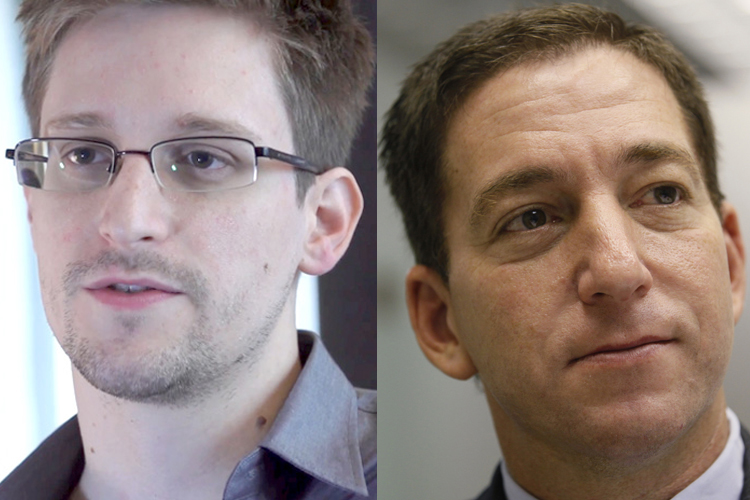There should be no doubt that the whistle-blowing of former NSA contractor Edward Snowden and the reporting by Glenn Greenwald at the Guardian together comprise the single biggest ongoing media story of the last few months — and it has truly been a media story. Indeed, unlike the journalism that surrounds a spontaneous event like a natural disaster, the reporting surrounding the NSA disclosures is, in part, about the fundamental relationship between the press and the government. More specifically, as Snowden himself said, it is about “the journalistic responsibility to challenge the excesses of government” by publishing material the government wants to keep secret.
Greenwald in particular turned it into that media story by not only responsibly publishing that material like the Washington Post did, but also by doggedly flogging the controversy as an ongoing commentary about the entire relationship between the public, the government and the press. And because that intrepid effort subsequently made the NSA disclosures the highest-profile media story in a generation, it stands to reason that the story will have a disproportionate impact on the public’s view of the media itself. That impact, in fact, could be one of the many significant long-term Snowden Effects.
The question, then, is: Will that Snowden Effect further erode Americans’ trust in the beleaguered news business, or will the story begin rebuilding that trust?
If the new findings from Gallup are representative of a larger trend, the answer seems to be the latter.
In its annual survey about Americans’ views of journalism, the polling firm documented one of the decade’s largest jumps in the number of people who say they trust the media. Notably, the spike in confidence was seen across all party affiliations.
The takeaway should be fairly obvious: Gallup’s results almost certainly show that the Snowden Effect had a positive impact on the media’s image. To know that’s the case is to simply remember that a) the NSA disclosures were the most prominent media story at the time of the survey and b) the trans-partisan nature of the public opinion bump not-so-coincidentally tracks the trans-partisan nature of the response to the NSA story itself.
Of course, Gallup’s poll last year showed that trust of the media hit a record low in 2012. So, cynics might say that trust ratings could only go up this year, whether or not the media did something to redeem itself. But all you have to do is look at congressional approval ratings to see that there was plenty of room for even further deterioration.
And yet, such a deterioration didn’t happen. That means for all the ugly snark directed at Greenwald by the establishment press and for all the vitriol aimed at Guardian reporters by the ever-expanding Journalists Against Journalism Club, competing news organizations probably should get over their jealousy and should probably stop being so angry about getting scooped. Instead, Gallup’s poll suggests they should simply say thank you because they owe the Guardian a debt of gratitude. After all, with an earlier Pew poll showing Americans desperately want an adversarial press, the British newspaper and its courageous U.S. affiliate gave them such a press — and now the entire news industry is benefiting.
If, as the saying goes, courage is contagious, then perhaps the encouraging trend in Gallup’s poll will help the Guardian’s brand of courage spread to other news outlets. Sure, many of them (to say the least) may not evince a principled devotion to adversarial journalism. But most of them understand self-interest, which is what these survey results are really all about for the news business. In the context of the NSA story, they prove that for media outlets there can be a self-interest in challenging — rather than transcribing — the official line.

